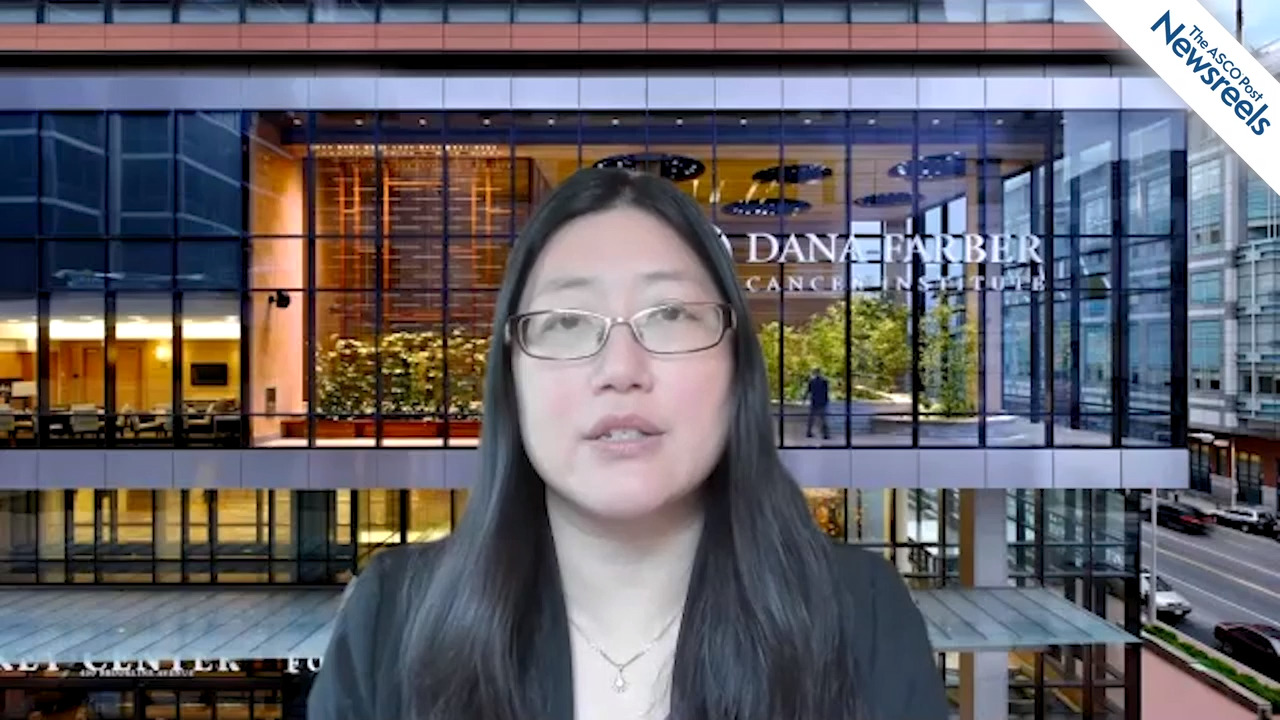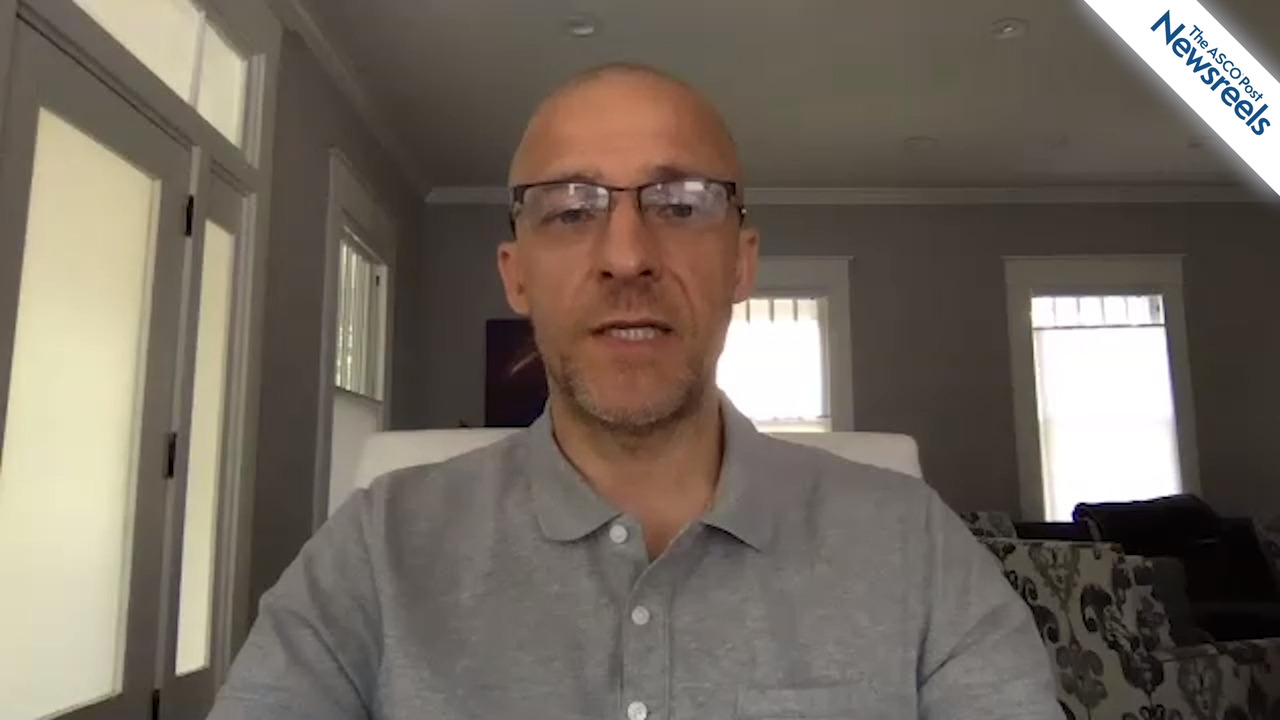David R. Wise, MD, PhD, on Novel Biomarkers in Prostate Cancer: Is Tissue the Issue?
ASCO20 Virtual Scientific Program
David R. Wise, MD, PhD, of New York University Perlmutter Cancer Center, summarizes three important studies in prostate cancer: circulating tumor cell count as a prognostic marker of PSA response and progression in metastatic castration-sensitive disease; new phenotypic subtypes; and how circulating tumor DNA dynamics associate with treatment response and radiologic progression-free survival (Abstracts 5506, 5507, and 5508).
The ASCO Post Staff
Nancy U. Lin, MD, of Dana-Farber Cancer Institute, discusses the HER2CLIMB study of patients with previously treated HER2-positive metastatic breast cancer that had metastasized to the brain. Adding tucatinib to trastuzumab and capecitabine doubled the intracranial response rate and reduced the risk of death by nearly half, compared with trastuzumab plus capecitabine (Abstract 1005).
The ASCO Post Staff
Parameswaran Hari, MD, of the Medical College of Wisconsin, discusses phase III data from a 6-year follow-up of the STaMINA trial, which compared progression-free survival among 758 patients with high-risk multiple myeloma who received a second autologous transplant and lenalidomide maintenance; consolidation with lenalidomide, bortezomib, and dexamethasone followed by lenalidomide maintenance; or lenalidomide maintenance alone (Abstract 8506).
The ASCO Post Staff
Jeremy L. Warner, MD, of Vanderbilt-Ingram Cancer Center, discusses data from the COVID-19 and Cancer Consortium cohort study, which included patients with active or prior hematologic or invasive solid malignancies, reported across academic and community sites (Abstract LBA110).
The ASCO Post Staff
Scott Kopetz, MD, PhD, of The University of Texas MD Anderson Cancer Center, discusses phase III results of the BEACON CRC study, which confirmed that, compared with standard chemotherapy, encorafenib plus cetuximab with or without binimetinib improved overall survival and objective response rate in previously treated patients with BRAF V600E–mutated metastatic colorectal cancer (Abstract 4001).
The ASCO Post Staff
Eric Jonasch, MD, of The University of Texas MD Anderson Cancer Center, discusses phase II study findings on the oral HIF-2α inhibitor known as MK-6482, which showed efficacy and tolerability in patients with Von Hippel-Lindau (VHL)–associated clear cell renal cell carcinoma as well as responses in other VHL-related lesions (Abstract 5003).





